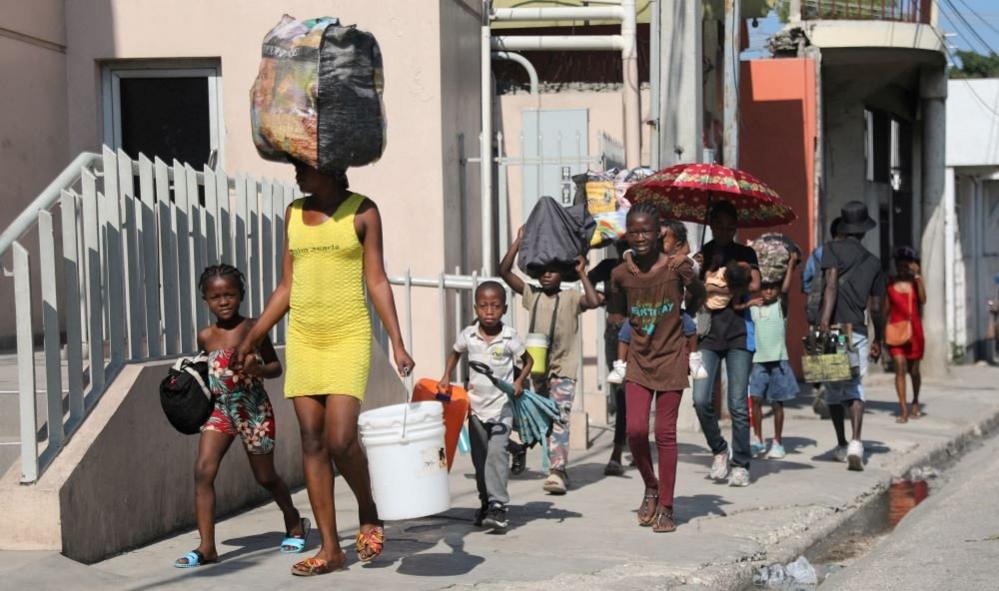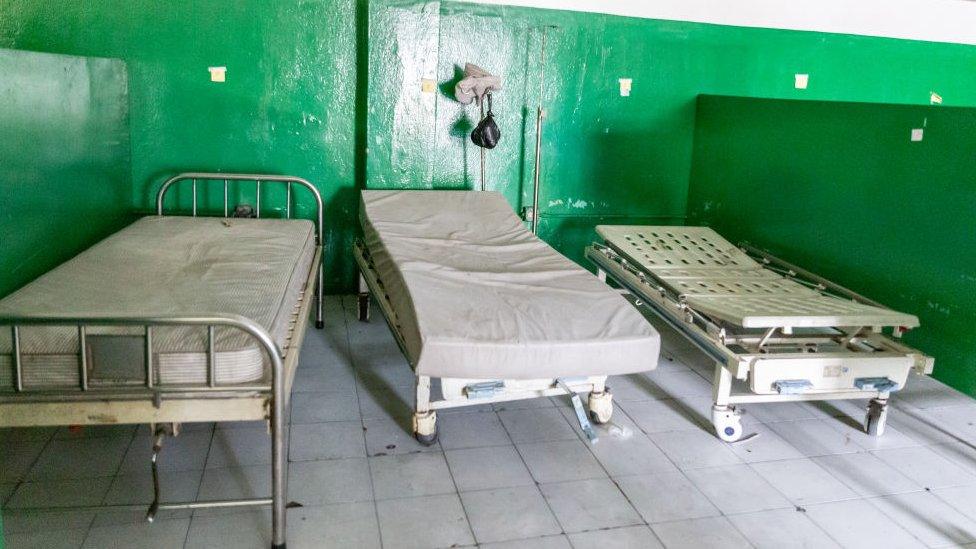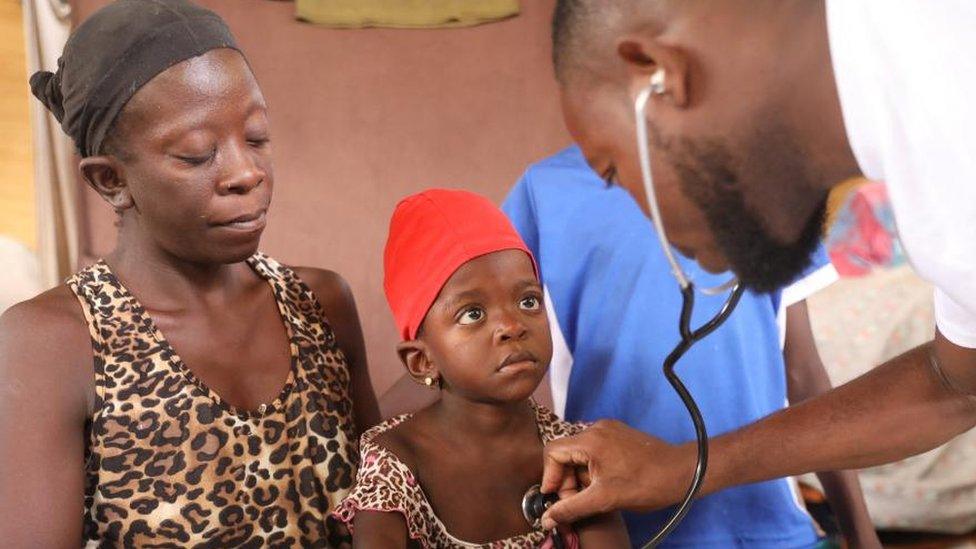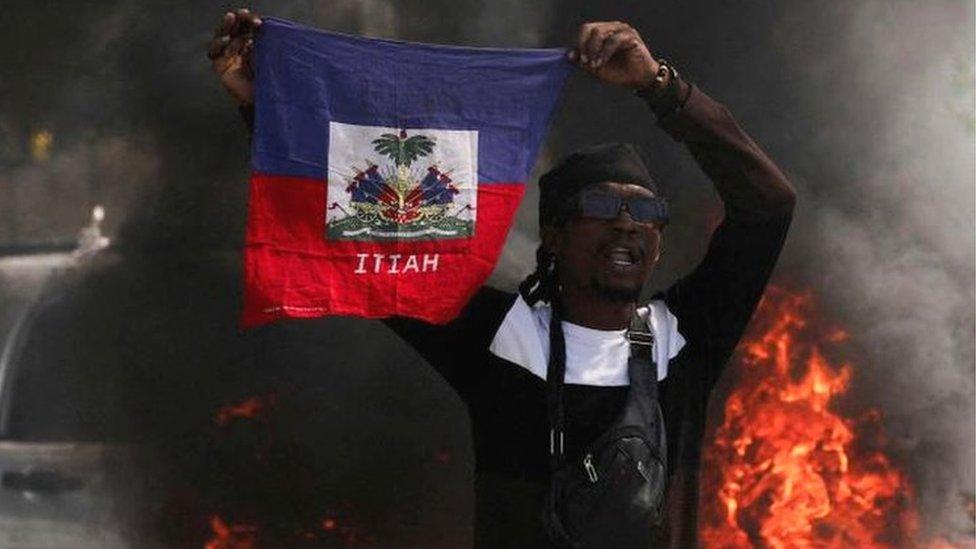Haiti gangs: More than 50,000 flee capital after surge in violence
- Published

Most of those fleeing have headed south, to areas still ravaged by the 2021 earthquake
Tens of thousands of people have fled the Haitian capital, Port-au-Prince, to escape a surge in gang violence over the past weeks.
UN figures suggest more than 53,000 left the city of 3m between 8-27 March.
The UN is warning that the rural regions to which many have fled are not equipped to deal with such a large influx of displaced people.
Meanwhile, gangs are attacking businesses in the capital, torching pharmacies and vandalising schools.
Haiti's national police succeeded in repelling an attack on the presidential palace on Monday but armed men stormed the nearby State University of Haiti hospital, known by its initials HUEH, to use it as their command centre.
HUEH had closed last month due to the violence and was meant to reopen on Monday.

The hospital had already been forced to close due to gang violence
The damage caused by the gangs is likely to further delay its reopening.
Access to healthcare, which was already severely restricted, has become even more difficult after armed men looted a hospital in the Delmas 18 neighbourhood and the Saint-Martin health centre last week.
Criminal gangs control not only the main port in Port-au-Prince but also many of the city's access roads, making it difficult to transport medical supplies.
While the situation in the capital's hospitals is dire, the UN has warned that the arrival of tens of thousands of displaced people in rural areas poorly equipped to deal with it also poses severe challenges.
Most of those fleeing Port-au-Prince have headed south, to areas which are still ravaged by the 2021 earthquake, which killed more than 2,000 people.
"It should be emphasized that [these] provinces do not have sufficient infrastructure and host communities do not have sufficient resources that can enable them to cope with these massive displacement flows coming from the capital," the UN's International Organization for Migration (IOM) said on Tuesday.
While Haiti has been facing a humanitarian crisis for years, the recent surge in violence started at the end of February when Prime Minister Ariel Henry travelled to Kenya to seal a deal for the African nation to lead a multinational security force.
The capital's warring criminal gangs united in an uneasy alliance to oust the prime minister.
Mr Henry was prevented from returning to the country as the gangs attacked the international airport, forcing its closure.
He agreed last month to step aside as soon as transitional presidential council was created.
The council issued its first official statement last week, promising to restore "public and democratic order", but it has yet to take any concrete actions.
Meanwhile, violent attacks in the capital resumed this week after a relative lull over Easter.
Related topics
- Published28 March 2024

- Published4 March 2024
